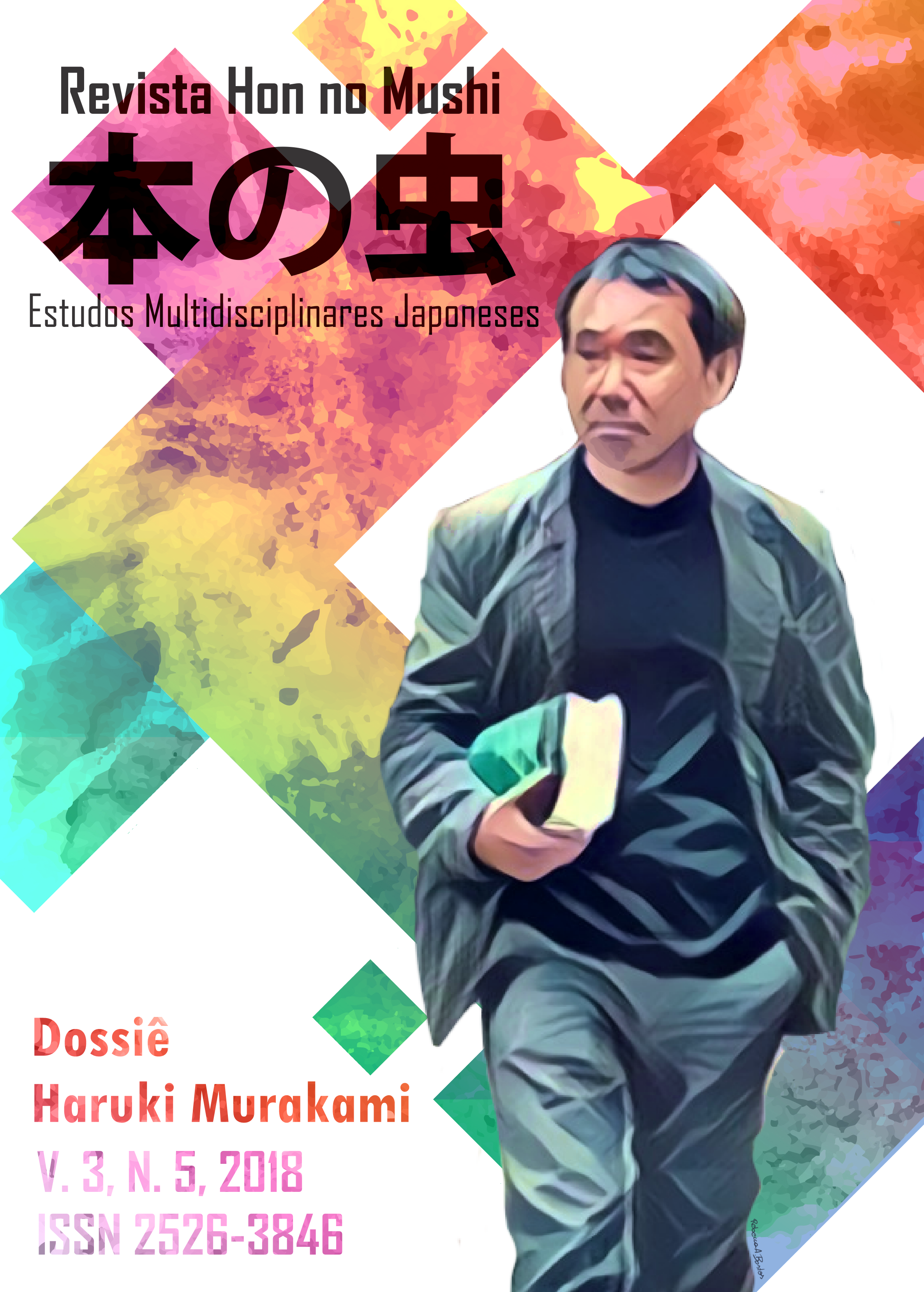Vol. 3 No. 5 (2018): Hon No Mushi - Japanese Multidisciplinary Studies - Haruki Murakami Dossier

Diffused since the 80's of the twentieth century, the fictional prose of Haruki Murakami appropriates postmodern elements, integrating the multiple textualities in which the literary bed unfolds. In his works, the construction of reality is elaborated from the double gear that emerges from the unconscious of his characters. By this modus operandi, in his poetic prose, the nuance of the word, for example, does not show the sharpness of the color that reveals the world, but ends up emphasizing and printing a force that installs itself in the plot. The consciousness of the real will only be noticed after traversing the dual paths woven by Murakami, especially under the decentralization of space, always in an orderly way.
The writing of Murakami is configured like a magnifying glass that increases the vision of the real, contributing peripheral details not contemplated by the common gaze. Then, in the transformative and inventive force of the literary making, which drives and moves the universe of writing - after all, they are the word and its time: the voice that clarifies, humanizes the unconscious and connects emotions, not simply the theme which is presented or preserved, but mainly by the reach of language, which moves to the frontiers of narrative space and establishes itself as a literary discourse.
Concerned with mediation and writing, the writer contests and breaks standards, constituting in the literary soil the harmonious confluence of action, characters, going and coming, thus instituting the character of a particular sector of society. And the social sector highlighted by Murakami is the peripheral. Part of the border to the center, that is, prioritizes the details, which go unnoticed to a more inattentive. The seemingly "loose" words are balanced in the narrative and become literary, converging in time and space, not accepting the imposition of a single truth, but leading the text to the framing of the world under multiple points of view. In this perspective, the refraction of Murakami's literature is taken by the awareness of the force of the word, presupposing descriptive contours as a kind of envelope of secrets. Thus, fissures are opened in the Murakamian narrative, whose imaginary ruptures direct and construct a new possibility for the gear of the text. Or simply illuminate the scene surrounding the character. In the recent creation, it breeds, from the unconscious, the inner glimpse that explores the surroundings.
Therefore, the Hon Mushi Journal - Volume 3, Issue 5, 2018, covers the universe of Haruki Murakami, the translation of his works, the writing and the various and varied dialogues peculiar to literary studies, which are spread by the murakamian territories.



